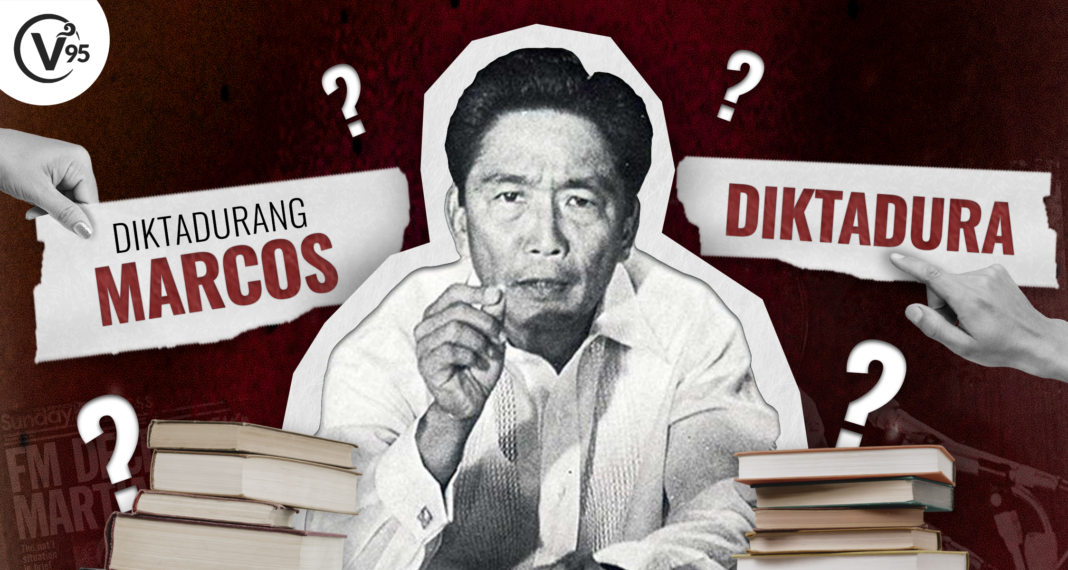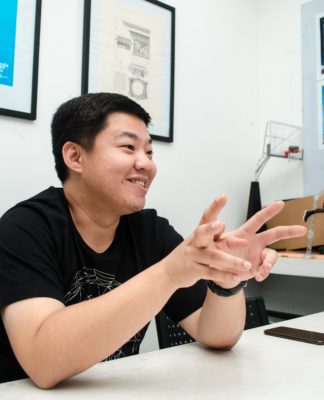A UST HISTORY professor has spoken out against the removal of Ferdinand Marcos Sr.’s name in references to his dictatorship in the new basic education curriculum, warning that it would distort historical memory.
Assoc. Prof. Eloisa de Castro of the UST Department of History said it was “insidious” to refer to Marcos Sr.’s military rule only as “diktadura (dictatorship)” instead of “Diktadurang Marcos (Marcos dictatorship).”
This alteration came through a memorandum issued by the Department of Education’s Bureau of Curriculum Development on Sept. 6. The memo called for the exclusion of Marcos Sr.’s name from textbooks for Grade 6 students.
The removal, according to the DepEd memo, “was made even after the arduous process of review and revision was done under the guidance and scrutiny of experts, the review of stakeholders, and the public and launch of the Matatag curriculum.”
“You can’t be generic about it,” De Castro told the Varsitarian. “There’s no such thing as a generic reference to a dictatorship in the entire history of the Philippines. There is only one dictatorship and that is the Marcos dictatorship.”
“If you drop the term ‘Marcos’ from ‘Marcos dictatorship,’ it is just like saying that one size fits all, it can refer to any dictatorship,” she added.
Excluding Marcos Sr.’s name, whose two-decade rule saw thousands of human rights violations and summary killings, may also have the effect of “softening up” public perception of the late dictator and his regime, De Castro said.
“The insidiousness and the very negative, dangerous precedent being set by this kind of thinking is incalculable,” she said. “We fought for the removal of the dictatorship, and imagine if the children would be conditioned not to think of it as something negative.”
“They are making it appear as if it (dictatorship) was necessary, it was needed, it was welcomed,” she said.
Marcos Sr. on Sept. 21, 1972, signed Proclamation 1081, which placed the Philippines under Martial Law.
His strongman rule was lifted in 1981 but only on paper, in time for the visit of Pope St. John Paul II. Marcos was ousted five years later in the nearly bloodless 1986 People Power Revolution.
The Marcos regime was marked by 3,257 deaths, 35,000 tortures, and 70,000 imprisonments, according to human rights group Amnesty International.
Historical negationism
On Sept. 11, DepEd curriculum development director Jocelyn Andaya claimed the change was “purely an academic discussion” and not a form of historical negationism.
Andaya said there was “no pressure of any kind” that influenced the DepEd to omit the name of the late dictator, whose son Ferdinand “Bongbong” Marcos Jr. is now president.
Marcos Jr.’s ally, Vice President Sara Duterte, is concurrently the education secretary.
“I don’t know if this comes from the vice president or the president himself, or the underlings who want to gain good graces from the president,” De Castro said. “In any case, whatever the source of this would be, it is a very dangerous precedent, and so we must not allow it.”
The Coordinating Council of Private Education Associations on Sept. 12 said private schools have the discretion to assess if including the “Marcos Dictatorship” in their curricula was necessary and appropriate.
According to De Castro, who teaches at the Faculty of Arts and Letters, students must have critical thinking, and teachers must emphasize the use of the historical method to evaluate the Marcos Sr. regime effectively and critically.
“That’s why I try to teach students about the historical method because [it] is centered on the critical examination of sources and critical examination of evidence,” she said.
“The golden age of the Philippines, there is no evidence about that,” she added. “Actually, it is the worst time that the Philippines ever had…The largest amount of foreign debt happened during the dictatorship, so how can they claim it was the golden age?”
This historical method should also be studied by Marcos supporters in Ilocos, the family’s bailiwick, to avoid what De Castro called “blind nationalism.”
“Nationalism should be genuine nationalism, which is born out of genuine care, concern and love and patriotism for the country,” she said. “It cannot be done blindly just because they are Marcoses, that they can’t do any wrong. That’s not right.”
The history professor said she would continue to oppose efforts to distort history.
“I will not change my line of thinking and I will not go their line–never,” De Castro said. “All the evidence points to the opposite. They have destroyed democracy instead of upholding democracy.” Hannah Joyce V. Andaya and Ernest Martin G. Tuazon.













